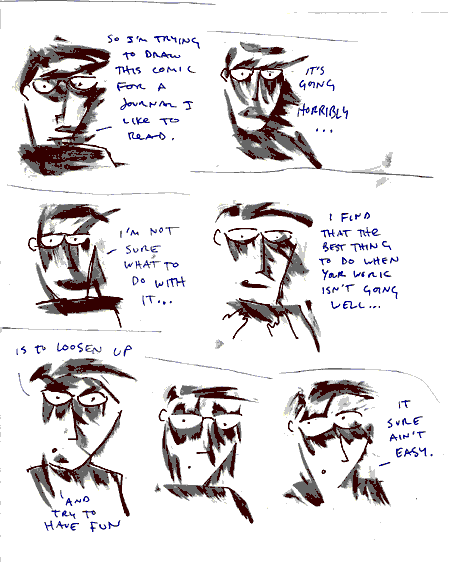
or, quit for the day and go down to Mama Santa’s to meet Johnny for pizza and catch-up. over lunch, Drain told me about a Dutch artist named Theo Jansen, who makes “skeletons which are able to walk on the wind.” This guy also made a flying saucer that actualy flew, and set it loose on an unsuspecting town. Awesome.











